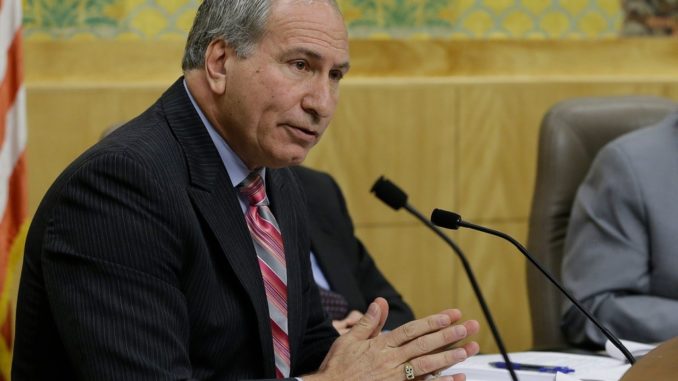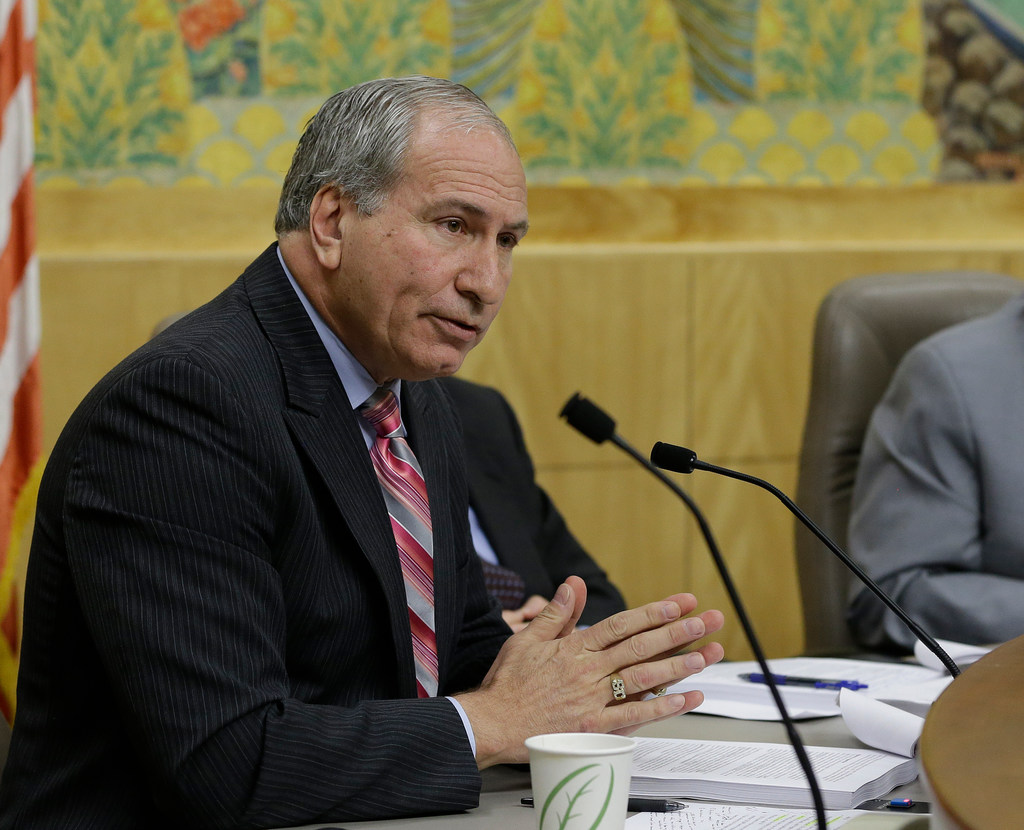
Riverside County schools could get some state money to purchase metal detectors if an Inland state senator’s bill becomes law.
The bill, SB 1443, sponsored by Sen. Jeff Stone, R-La Quinta, would focus on Riverside County, setting up a pilot program that would give the county Office of Education a $100,000 state grant to buy metal detectors if the office raises $900,000 in private donations for the same purpose.
Schools in the county could then apply to the office for a grant to buy metal detectors. After two years, the state Office of Education would review the pilot program, possibly extending it to other counties throughout California. Officials in Los Angeles and Orange counties say they’re open to the idea.
Stone’s bill would sunset after six years.
It’s not clear if the bill will be voted on before the legislature adjourns Aug. 31. While the Senate Education Committee passed the bill without objection on Aug. 7, the legislation is in limbo after being added to the Appropriation Committee’s suspense file Monday, Aug. 13.
Public concern about school shootings has grown following a series of high-profile incidents, including the Feb. 14 mass shooting at Marjory Stoneman Douglas High School in Parkland, Florida that killed 17 and spurred a student movement to push for tougher gun laws.
In 2015, Stone voted against a state law that prohibits people with concealed weapon permits from bringing guns on school campuses in most circumstances. Despite opposition from Stone and most other GOP state senators, the bill was passed by a wide majority and signed into law by Gov. Jerry Brown.
School shootings have continued despite such restrictions, including a recent incident close to Stone’s district. In April 2017, a gunman walked into a classroom at North Park Elementary School in San Bernardino and killed his estranged wife and a student before killing himself.
Stone, who since 2015 has consistently voted against gun control measures, said he offered the bill after speaking with families and school officials concerned about school safety.
“In this world of uncertainty, one thing we know for certain is that it’s not a question of if, it’s just a matter of when the next tragic episode of school violence will occur,” Stone told the education committee. “We are all looking for ways to make our schools safer. And this is just one small way to accomplish this goal.”
Stone’s spokesman, John Hunneman, said the program proposed by the bill is completely voluntary.
“If it saves one life, why not try it?” Hunneman said. Asked if Stone’s gun control views have changed since Parkland, Hunneman said the senator has been a “consistent supporter of the Second Amendment.”
Craig Petinak, an education office spokesman, said: “We share Senator Stone’s goal to enhance the safety of students in Riverside County schools, but have not taken a position on SB 1443.”
“In reviewing the bill with our school safety and facilities staff, it is evident that at many school sites, the installation of metal detectors would need to be accompanied by additional measures, including but not limited to, facilities retrofits and security enhancements on the school perimeter,” he said. “These would entail additional costs which may not have been contemplated under SB 1443.”
Petinak added: “Many of our school districts have undertaken security assessments … (and) many have already deployed additional safety measures, and we look forward to working with Senator Stone and his colleagues in the Legislature on a comprehensive statewide approach to ensure the safety of all students.”
Many Los Angeles County school districts already use metal detectors, said Arturo Valdez, chief academic officer for the county’s Office of Education.
While the office’s government relations staff are keeping track of Stone’s bill, metal detectors are “one of many tools” L.A. county districts use to keep students safe, Valdez said, including active shooter training and putting more counselors in schools.
The majority of weapons found at school are not discovered by metal detectors, but because teachers, students, and administrators talk with each other, Valdez added.
Orange County Office of Education spokesman Ian Hanigan said: “We are eager to support any measure that will ensure the safety of students. In concert with our local superintendents and other stakeholders, we plan to carefully monitor the progress of this bill and the potential outcomes of a pilot program.”
Dan Evans, a spokesman for the San Bernardino County Office of Education, said: “We’d need to find out more about the legislation. With any security measures, especially something like metal detectors, there’s certainly some civil rights considerations to take into account.”
“Obviously, people are very concerned about the safety of schools and finding the right solutions is an ongoing process.”
Safer schools?
A staff report prepared for the Senate’s education panel cast doubt on whether metal detectors make schools safer.
The report cited a 2005 state education study, which found that “procedures that focus primarily on altering physical aspects on the school campus (including metal detectors) seem to have the opposite effect of increasing adverse student behaviors.”
Also cited was a 2010 “Journal of School Health” article on metal detectors, which found “insufficient evidence … to determine whether the presence of metal detectors reduces the risk of violent behavior among students, and some research projects suggest that the presence of metal detectors may detrimentally impact student perceptions of safety.”
While Stone’s bill would apply only to Riverside County, “this bill could lead to cost pressure for the state to provide metal detectors to other schools throughout the state,” read a report for the Senate appropriation panel.
“Assuming an average cost of between $5,000 and $10,000, the Proposition 98 cost to purchase a metal detector for every school would be approximately $75 million,” the report read. Prop. 98 sets minimum state funding levels for K-12 schools.






